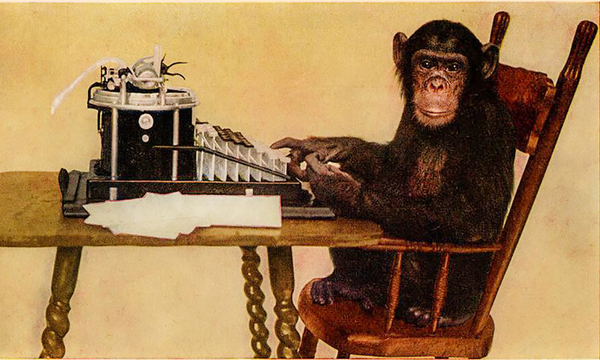Hobbits are fond of laughing, eating, drinking, and eating some more. In fact, Tolkien (in The Lord of the Rings) describes them as eating six meals a day — yet they are nimble enough to disappear swiftly and silently when they want to avoid “large folk. ” Though Tolkien describes hobbits as simple people concerned mostly with food, there is another critical characteristic of hobbits that he highlights (that is not as clearly depicted in the movies), namely, that they generally keep to themselves and focus on what lies inside their borders rather than looking outside:
“they plied their well-ordered business of living, and they heeded less and less the world outside where dark things moved, until they came to think that peace and plenty were the rule in Middle-earth and the right of all sensible folk. They forgot or ignored what little they had ever known of the Guardians, and of the labours of those that made possible the long peace of the Shire. They were, in fact, sheltered, but they had ceased to remember it.”
As the story unfolds, the story of Middle Earth reaches a point in which the general hobbit ignorance of the outside world cannot continue. Frodo later hears from an ally on his journey, “The wide world is all about you: you can fence yourselves in, but you cannot forever fence it out.” At the end of The Return of the King, we see the truth in this statement, when the Shire is invaded from outside forces that the hobbits are powerless to fight against because they had not prepared themselves for the upcoming battle by being aware of the events in their world.
Tolkien, then, identifies both the hobbits’ ignorance of the events (and people) outside their land, but also the protected status that they ceased to remember. As I reflect on these words from Tolkien, I cannot help but reflect on the state of Christianity in the United States. It is obvious that the United States has undergone many changes over the past 30 years. Many Christian families are moving to states that more closely align with their values, are less hostile to Christianity, and are more affordable. The desire to live in a place where your values are reflected in your community is not wrong or sinful per se. Each situation is different, and there are legitimate and wise reasons to make this kind of move. But I do have some unease about the widespread trend, and Tolkien eloquently gives words to it, namely, the (sometimes unspoken) desire to hide away from the secular forces in our world. In fact, not only are we not able to hide, but Tolkien accentuates our inability to keep ourselves safe from hostile, outside forces in his discussion of the Shire and the mentality of the hobbits that live there.
The Shire and the attitude of the hobbits reminds me of Christendom in America. Christians have largely flourished throughout the history of America, and it feels as if we have been protected for decades. The lack of external persecution has enabled Christians to worship without hindrance. Over 200 years of American history in which nearly every citizen was familiar with Christianity, Jesus, and the Bible — whether they believed in them or not — has led us to believe that this peaceful, free worship and a culture largely sympathetic with Christianity is the normal way of life, but an analysis of history shows that this cultural sympathy has not been the case. We have forgotten that this privileged existence in America is the exception rather than the rule of history.
Gandalf’s later statement to Frodo concerning the situation of the Shire rings particularly true today when he says, “your safety has passed.” No longer do we live in a culture that has passing familiarity with Christianity (though some parts of the country still may) or where we can expect a sympathetic ear or even an agreement on moral absolutes or sources of authority. The time for complacency stemming from our priority in culture has ceased.
Furthermore, like the statement Frodo hears, “You can fence yourselves in, but you cannot forever fence [the world] out,” we increasingly see that, despite our best efforts, we cannot stay insulated from the world. Globalization means that secularism and other religions are everywhere now. With the swipe of a smartphone, anyone can access knowledge or content from nearly every corner of the world. We cannot “protect” ourselves or our families by trying to shelter them from the world. Nowhere in the United States is now “safe” for Christians because the internet means that the outside world can enter into our homes and the homes of those in our intimate circles. We may move to a location where external forces are not as outwardly hostile to Christianity, but the world encroaches within our homes and communities, no matter how hard we try to hide from it.
I sit in a place (the Netherlands) where the Reformation made particularly strong inroads. Before they sailed to America, the pilgrims once sought refuge here in order to practice their religion freely, according to their convictions. Theologian Abraham Kuyper argued that Christ is Lord over every dominion of life in this country less than 150 years ago. Less than 100 years ago, churches were filled and overflowing with people. Now, most churches sit empty. Church buildings have become museums, bars, hotels, or, in one case, an indoor playground for children. This country is a testament to the fact that you cannot keep the world out forever. We may move and try to find people more like us, but we cannot forever prevent the outside world from intruding within our protective bubbles.
In contrast to the rest of his countrymen who remain ignorant of the outside world and seek safety inside their borders, Frodo courageously leaves the comfort and seeming safety of the Shire with the hope of saving it from the hostile, evil forces. Little did he know that the dark forces would soon intrude back into the Shire after he left it. He, along with Sam, Merry, and Pippin, must deliver it from the evil that has infiltrated it. Interestingly, it was in leaving the safety of the Shire, and the transformation that took place on their journey outside their comfortable world which equipped them to return home and save it. During their quest to Mt. Doom, Frodo and Sam grew in wisdom, forgiveness, and, particularly, mercy and compassion toward those undeserving of it (Gollum). Perhaps most importantly, both Sam and Frodo learned the need for self-sacrifice to defeat evil. Even Saruman, Frodo’s enemy, acknowledges Frodo’s transformation at the end of the book when he states, “You have grown. . . yes, you have grown very much.”
We can bemoan the present state of America and long for what once was, or we can recognize the moment in which we live and make the most of our opportunity. We can seek to shelter our children from the world, or we can actively guide them through the perils of worldly influences.
Frodo’s example can be a guide for us — we cannot ignore the world outside our walls, but should seek to understand it — understand the beliefs, cares, and concerns of others outside our walls. As we understand the underlying worldview and concerns held by those around us, we can better explain to our children the ways in which the Christian worldview is distinct. Our children will be exposed to these worldviews whether we like it or not, so we can prepare them with knowledge of opposing beliefs and teach them about the Christian worldview. We have the opportunity to help them see the world outside the comfort of our homes, so it does not surprise them when they leave. Deuteronomy 6 exhorts parents to teach their children wherever they go about the Lord’s commandments. Likewise, as they see advertisements, observe different types of families, interact with other children, we can approach these as opportunities to teach our children about both the Christian worldview and the other worldviews they will encounter. Learning about and understanding the worldview of others around us also makes us more effective ministers of the gospel as we can not only contextualize the gospel for our neighbors, family, friends, and children who are not believers, but also for ourselves. Thinking through how the gospel relates to culture helps us to see the gospel through a new lens and perhaps gives us deeper insight into the work of God.
As Christians, we can no longer fence out the world — and maybe that’s for the best. The time of the safety and sheltering of Christians in the West has passed. We must drop the “Shire mentality” of failing to heed the world outside our homes and communities and make the most of every opportunity to engage with and bring a light to the world outside. Our motivation in looking to the world outside our homes is to shine the light of the gospel into the dark world, but, as we do, we find, perhaps surprisingly, that we ourselves are changed in the process.
Adam Day is Associate Professor of New Testament Language and Literature at Tyndale Theological Seminary in The Netherlands. He taught for five years at the International Graduate School of Leadership in Manila, Philippines and occasionally teaches classes at Talbot School of Theology. In addition to a Ph.D. from the Southern Baptist Theological Seminary, Adam holds three degrees from Talbot (B.A., M.Div., and Th.M.).
 51ÂÜŔň
51ÂÜŔň.jpg)


.jpg)
